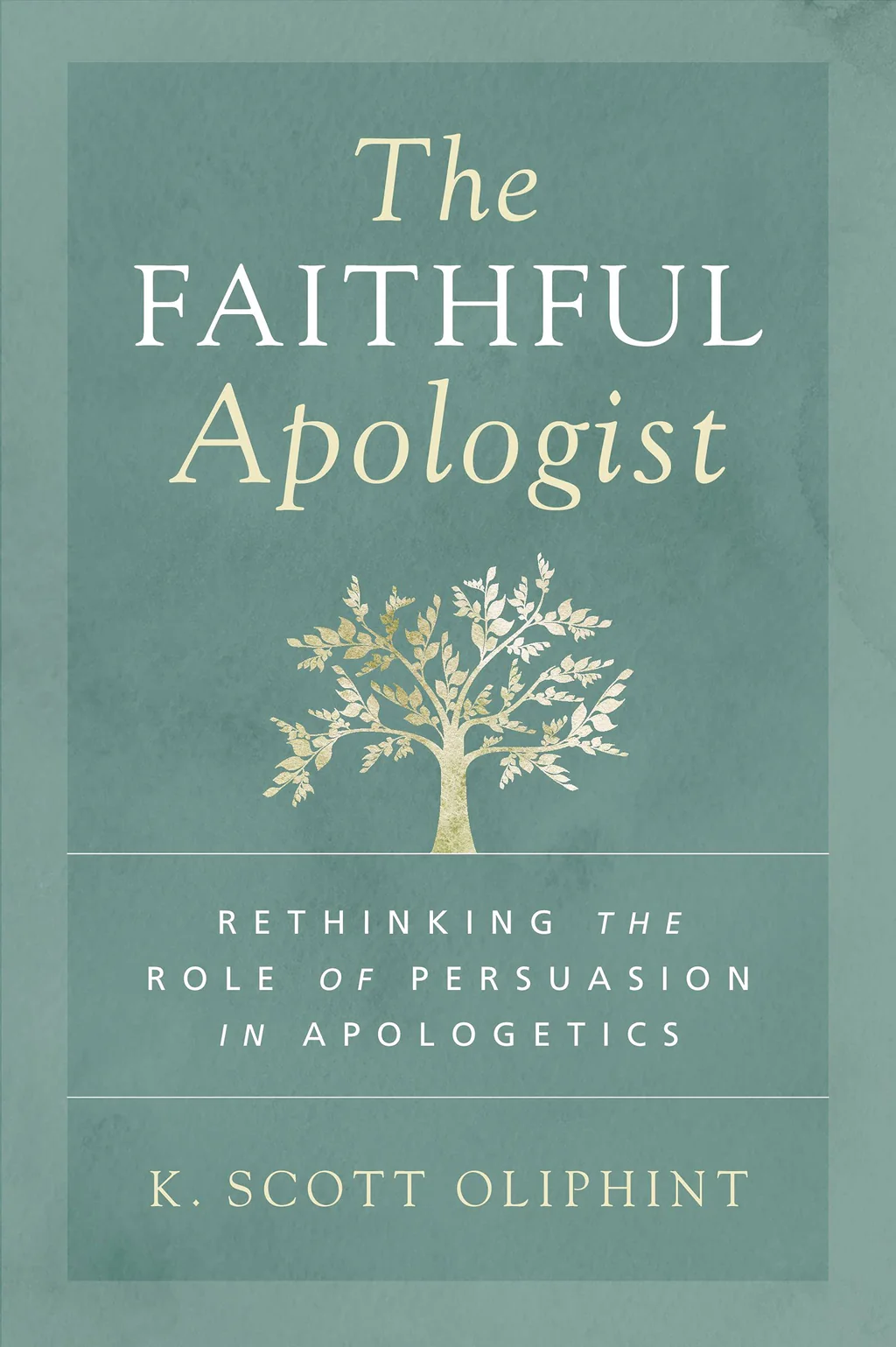
K. Scott Oliphint
Reviewed by: Allen D. Curry
The Faithful Apologist: Rethinking the Role of Persuasion in Apologetics, by K. Scott Oliphint. Zondervan, 2022. Paperback, 224 pages, $2.31 (Amazon). Reviewed by OP minister Allen D. Curry.
Readers of New Horizons probably have different reactions to a review of a book about apologetics. Some may eagerly seek out such works. Others may wonder, What is apologetics anyway? Still others will roll their eyes and say, “a book on philosophy.”
Dr. Scott Oliphint, longtime professor of apologetics at Westminster Theological Seminary, offers another fine work on the subject. He offers wise and helpful counsel to those who aren’t clear about the scope or meaning of Christian apologetics. The reader will not find extensive references to unbelieving philosophers. Instead, we find apologetics that at its “core consists of biblical reasons for the hope that is ours in Christ” (xiv). The author seeks to add to apologetics a perspective that includes persuasion.
The book begins by presenting God as the great persuader. The reader is guided to look at the way God accommodates to our creaturely status by communicating with us through the written and the incarnate Word.
He next expounds the Bible’s teaching on God as the divine warrior. He shows why this notion is important in a sinful world opposed to God. Oliphint makes the point that God is the ultimate defender of the faith.
A third element in Oliphint’s approach is the role of the Word and Spirit, which he designates divine sword.
Oliphint then lays out three categories of Aristotle’s Rhetoric. He first addresses ethos or our personal character. The second element in persuasion is pathos or understanding those with whom we converse about Christianity. The final category is logos or the offering of proofs or arguments for our commitment to Christ.
The strength of the book lies in the way the author bases his positions in the Scriptures. He does an excellent job of expounding the biblical basis of apologetics. In his finely developed biblical studies, two aspects are particularly well done. Oliphint’s treatment of the image of God is superb. In addition, he handles skillfully Paul’s speech on Mars Hill in Acts 17.
In this excellent contribution to the defense of the faith, I found one aspect a bit confusing. It is the way Oliphint defines persuasion. He sees the core of persuasion as “our attempt to discern and initiate a connection between two or more people in order to defend and commend the gospel to them” (xi). If one follows a simple dictionary or even an ordinary language meaning of persuasion, convincing or changing someone’s mind is crucial to the meaning. I recognize that Oliphint wants us to see that God is the one who changes people. As I think of persuasion, I’m drawn to Paul’s defense in Acts 26. When King Agrippa asks whether Paul thinks he could persuade him to be a Christian in a short time. Paul responds: “I would to God that not only you but also all who hear me this day might become such as I am—except for these chains” (v. 29).
Perhaps the author wants to maintain a clear difference between apologetics and evangelism. If so, I’m not convinced. With that caveat, I find Dr. Oliphint’s work worth the effort to read and digest.
December 28, 2025
December 21, 2025
December 14, 2025
December 07, 2025
November 30, 2025
November 23, 2025
November 16, 2025
© 2026 The Orthodox Presbyterian Church